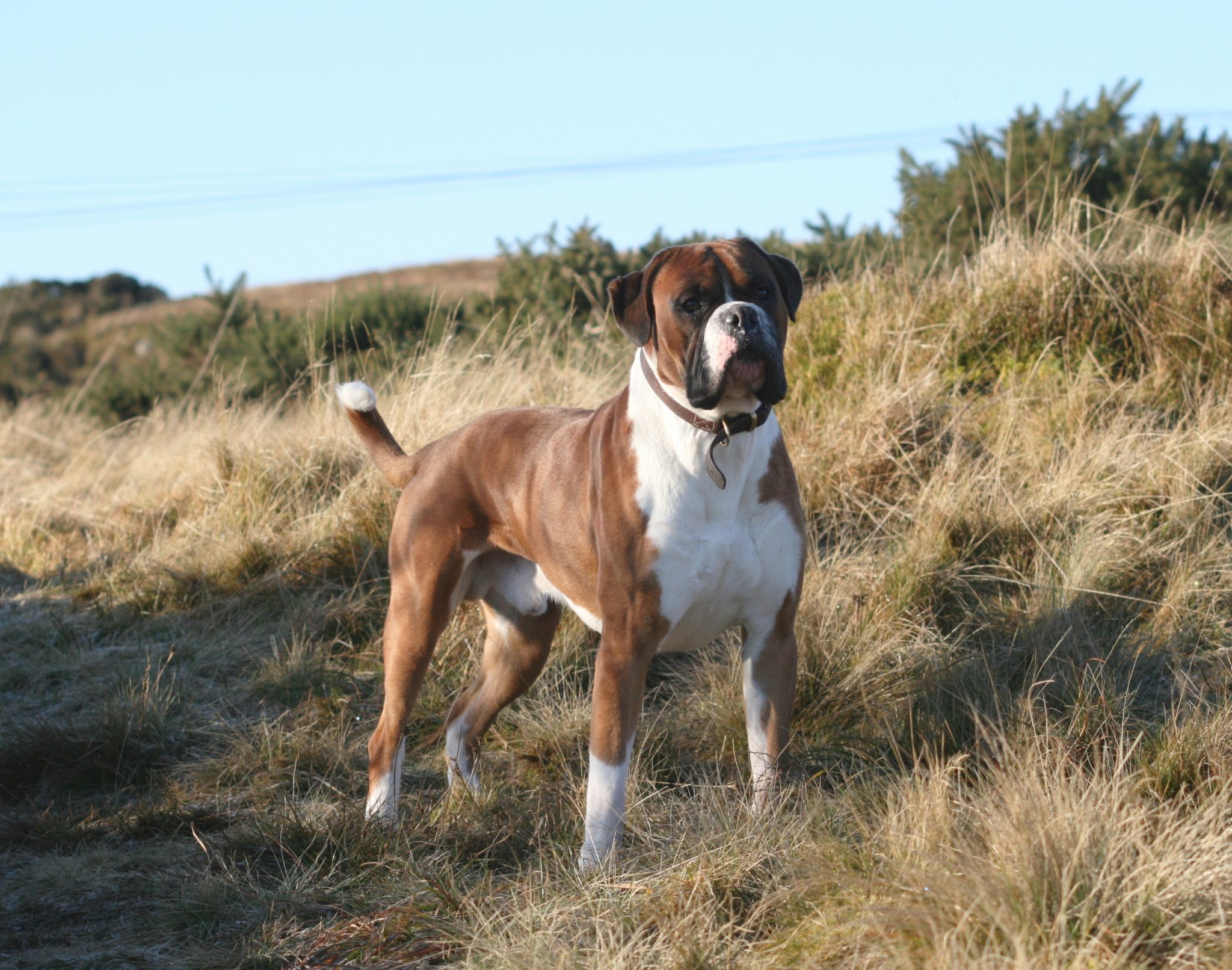

It's also partly due to the deformities in their structure, especially their shortened face. This is partly due to unwise breeding practices such as inbreeding and linebreeding, which are more likely to pass along defective genes. Most Boxers, unfortunately, do not live a long life. If I was considering a Boxer, I would be most concerned about. More traits and characteristics of Boxer dogs Finally, you can avoid some negative traits by training your Boxer to respect you and by following the 11-step care program in my book, 11 Things You Must Do Right To Keep Your Dog Healthy and Happy.Unfortunately, you usually can't tell whether a puppy has inherited temperament or health problems until he grows up. If you want a puppy, you can avoid some negative traits by choosing the right breeder and the right puppy.With an adult dog, you can easily see what you're getting, and plenty of adult Boxers have already proven themselves not to have negative characteristics. You can avoid some negative traits by choosing an ADULT dog from an animal shelter or rescue group.Temperament and behavior are also shaped by raising and training. Keep in mind that the inheritance of temperament is less predictable than the inheritance of physical traits such as size or shedding. Very real potential for health problems and a short lifespan.A strong-willed mind of his own, requiring a confident owner who can take charge.Potential aggression toward other dogs (usually of the same sex).Rowdiness and exuberant jumping when young.Looks imposing enough that he is an effective deterrent even when friendly.Is usually steadfast and reliable with everyone.Is medium to large, with a rugged, sleekly-muscled "masculine" build.

Other Boxers are more standoffish, neither fawning over strangers nor threatening them.Ī few Boxers (typically those from German lines) are more forceful and challenging.Įarly socialization is important to develop a stable attitude in your Boxer. Most Boxers react to strangers with a joyous "Hi, come on in!" accompanied by enthusiastic jumping and tail-stump wiggling. Their guarding and territorial instincts, though, vary a great deal. Most Boxers make vigilant watchdogs – meaning they will bark when they see or see something out of the ordinary. They will "shut down" (sulk and pout and passively refuse to do anything) if you jerk them around. Boxers are stubborn, yes, but also sensitive and proud. But you must handle them in an upbeat, persuasive way. Their heritage, after all, is that of a strong-minded working dog. Though most Boxer dogs are fine with other family pets, including the family cat, quite a few Boxers are dominant or aggressive toward other dogs of the same sex, and some are cat chasers.īoxers need consistent leadership. Middle-aged Boxers typically become more deliberate and dignified and make calm, loyal companions for the rest of their (unfortuntately not very long) lives.Įxercise needs vary from long daily walks for more sedentary Boxers to vigorous daily romping for high-energy individuals – but not in hot weather, because Boxers are more susceptible to heatstroke than most dog breeds. Boxers can be fine family dogs if you can proviide enough exercise and training to control their rambunctiousness when young, and if you can provide for their special needs due to their unnaturally short face.Īs puppies and young adults, Boxers are animated, playful (often cuckoo!) dogs who love to romp and jump.


 0 kommentar(er)
0 kommentar(er)
